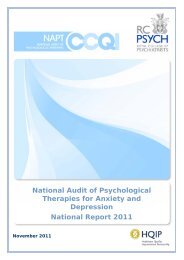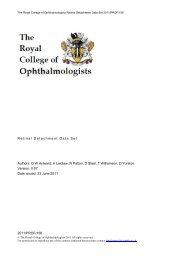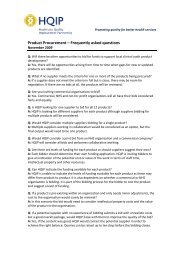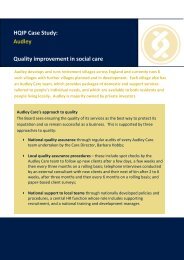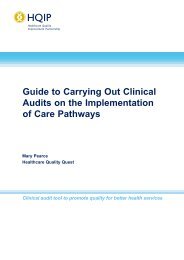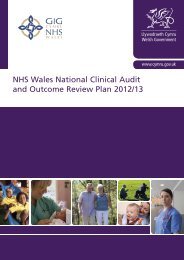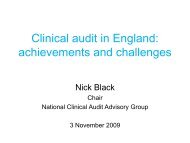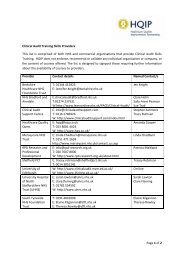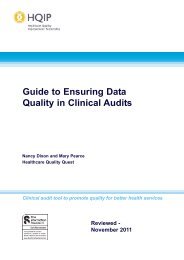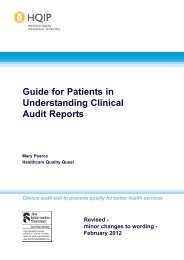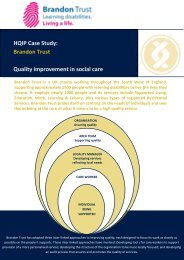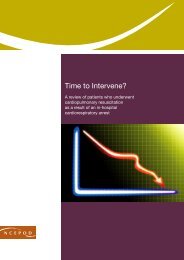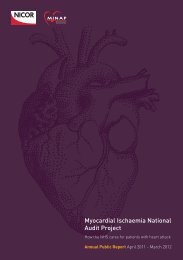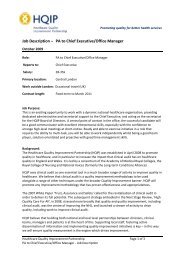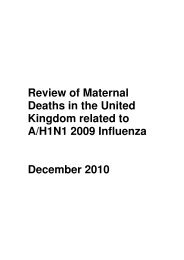Good Governance Handbook - HQIP
Good Governance Handbook - HQIP
Good Governance Handbook - HQIP
You also want an ePaper? Increase the reach of your titles
YUMPU automatically turns print PDFs into web optimized ePapers that Google loves.
corporate governance 11 . The Care Quality Commission (CQC) use Quality Risk Profiles<br />
which have been developed for all NHS organisations as a way of determining when<br />
and what to base their inspection programme on.<br />
A recent Airmic publication, written by Cass Business School, 12 identified seven broad<br />
areas of risk that have traditionally been beyond the scope of risk management. The<br />
research identified key lessons associated with the failure to prevent significant crises<br />
and thereafter manage the consequences. The failures that gave rise to each crisis<br />
were analysed and seven key issues emerged:<br />
• board skills and inability of Non Executive Directors (NED)members to exercise<br />
control<br />
• blindness to inherent risks, such as risks to the business model or reputation<br />
• inadequate leadership on ethos and culture<br />
• defective internal communication and information flow<br />
• organisational complexity and change<br />
• inappropriate incentives, both implicit and explicit<br />
• ‘Glass Ceiling’ effects that prevent risk managers from addressing risks<br />
emanating from top echelons.<br />
3.4 The challenge for governance today<br />
All of the above adds up to a new and very different challenge to NHS and other<br />
healthcare boards in the coming years. We are moving away from a spoon-fed,<br />
prescribed model of leadership and governance to one where boards will need to<br />
craft their own arrangements, based on good governance principles and established<br />
better practice. Boards will need to ensure that they are in a state of continual<br />
preparedness for an ever-changing world, where significant demands are placed on<br />
their organisations and budgets.<br />
Additionally, as CCG boards and HWBs develop many individuals new to board<br />
governance roles are entering the scene in critical roles, controlling complex,<br />
important organisations. And last but by no means least, organisations need to<br />
respond to the current crisis in credibility that safety and quality issues are identified<br />
and managed at board level. This amounts to a manifesto for a better understanding<br />
of what good governance is, what it can deliver and what the foundation principles<br />
are, upon which, good governance practice can be developed.<br />
11 Financial Services Authority, Effective Corporate <strong>Governance</strong>: Significant influence controlled<br />
functions and the Walker Review, September 2010<br />
12 Airmic, Roads to Ruin A Study of Major Risk Events: Their origins, impact and implications, July 2011<br />
www.good-governance.org.uk 8



